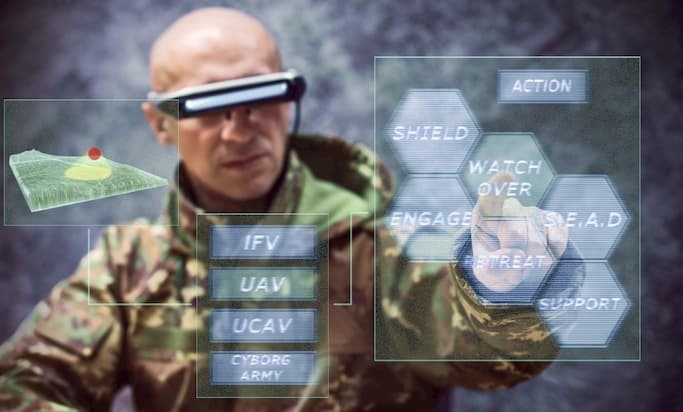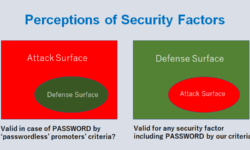In today’s rapidly changing operational environment, the neophyte nature of cyberspace military theory is relevant in defense policy and practice. Need exists to develop and debate a comprehensive theory of cyberspace.[1] One part of that emerging theory is that cyberspace is a military domain like no other. Space, land, air, and sea do not have the same characteristics as cyberspace. Cyberspace differs fundamentally from these traditional physical domains.[2] These domains exhibit physical spaces; however, cyberspace further extends into cognitive and virtual realms. Ultimately, cyberspace reveals a whole new set of characteristics that encompasses new theoretical territory. Paradoxes associated with cyberspace are significant to understanding this military domain.
What is a paradox? Usually it is something that seems contradictory but is still true. Within cyberspace there are a number of paradoxes observed through the lens of military application. Those paradoxes include: first, a near peer is more prone to cyberattacks, second, the more a military depends on cyberspace the greater the need to use and understand analog procedures, third, cyberspace allows other actors (state, non-state, free, surrogate, single action, and criminal actors) to operate on a somewhat level playing field, and finally, cyberspace is the one military domain that continues to grow in complexity, scale, and scope. These paradoxes demonstrate some of the unique properties associated with cyberspace as an operating military domain.
The first paradox concerns militaries with near peer qualities. Near peers such as Russia and China field militaries with similar capabilities and abilities. Characteristics of near peers include weapons with advanced technology, professional soldiers, and relative combat power equal to your own nation state or non-nation state if applicable. A near peer is just as dependent upon their nation state military for information systems to generate data that eventually transforms into knowledge. Knowledge enables two separate but very important activities in military planning. First, knowledge provides shared understanding. Secondly, knowledge informs decision making.[3] During the planning of military operations information systems are heavily dependent upon cyberspace. Systems ranging from intelligence gathering to maneuver tracking gather information on the modern battlefield. Battle tracking report of logistics stocks also requires information systems. A Rand report from the late 1990’s suggested that the United States and other countries had grown very dependent upon information and communications technology (ICT) and that computer attacks would have strategic effect.[4]
The second paradox is that if a military depends upon cyberspace then the need for analog (backup) systems is paramount. This includes everything from a map and acetate for battle tracking to the ability to gather information from subordinates via alternative means. “Any military forces that drive, sail, fly, or orbit rely on computers for intelligence, communications, logistics, and administration; any intrusions that disrupt, confuse, or deceive these systems may undermine tactical performance, potentially with strategic consequences (i.e., forces may not get to the war in time or may not be able to target the enemy, and only the enemy, when they do).”[5] One may believe that a military could provide enough redundant systems to overcome the need for analog systems. However, complexity of computer data, proliferation of information, and the ability to tie into multiple systems deliver the 21st century military commander with an overload of information. Excess info does not eliminate the need for analog backup systems.
The final paradox is that cyberspace, unlike the other military domains, continuously expands and is constantly getting larger. It is the only domain of warfare that is in a constant state of replicating itself.[6] The other domains, less space, are primarily fixed physical areas to operate within. The land, sea, and air are finite and militaries can only operate within set areas. These military domains are also restricted in terms of Newton’s Laws of Motion. For example an object at rest tends to stay at rest.[7] In cyberspace there are physical spaces but also cognitive and virtual places that do not adhere to this law. Also in Newton’s Second Law, the acceleration of an object as produced by a net force is directly proportional to the magnitude of the net force, in the same direction as the net force, and inversely proportional to the mass of the object.[8] These laws are normally observed within the physical military domains of sea, space, land, and air. However, cyberspace, is not restricted to these laws and in fact will continue to expand in complexity, size, and scope. Interaction with cyberspace also does not adhere to Newton’s Second Law concerning acceleration, net force, and the mass of an object. “The limits of cyberspace are uncharted with rapidly expanding boundaries and increasingly complicated internal configurations.”[9] Furthermore, it is possible to connect with cyberspace through technology, but that also means that the cyberspace is connected to that device. “It is impossible to open a perfect one-way portal to the cyberspace commons.”[10] Thus, as cyberspace continues to grow any data sent over this domain is accessible by the entire domain. Therefore, in spite of the fact of cyberspace is becoming larger and more complex with additional devices and infrastructure, access is always readily available.
There are a number of policy and practice suggestions to consider and implement based upon these paradoxes within the military cyberspace domain. First, when planning military operations with near peer competitors, that planning must include an understanding of the effects of attacks on that peer through cyberspace; understanding that those attacks will be more effective on a near peer competitor than a non-state or free-state actor that exhibits less dependence upon cyberspace for operational information collection, dispersion, and protection. Secondly, as we continue to rely on technology and connectivity of that technology we are even more dependent upon cyberspace for operations. With that dependence comes risk that must be mitigated with analog means. Analog capabilities are required when the “fog of war” or in German nebel des krieges, not exactly what Prussian Carl von Clausewitz stated in his posthumously published book. He stated the concept in metaphor form but with the same intended meaning. Dependence upon devices connected to cyberspace will from time to time cause this friction or fog of war to be readily present in military operations when those connections are severed. If we do not have analog backup systems in place the risk to military formations is grave. Finally, understanding and express the fact in military planning that cyberspace as a domain of conflict is every expanding. Cyberspace, as it expands also continues to increase in intricacy and number of devices connected. Despite these facts, access to this domain allows everyone in the domain access, limited or otherwise, to your data when connected. Consequently, when planning for operations within cyberspace protection of assets is key and fundamental in operating in this military domain.
Disclaimer:
The views and conclusions expressed in the context of this document are those of the author developed in the freedom of expression, academic environment of the US Army Command and General Staff College. They do not reflect the official position of the US Government, Department of Defense, United States Department of the Army, or the US Army Command and General Staff College.
[1] MAJ Tennille W. Scott and Dr. O. Shawn Cupp, “Ethics of Hacktivism,” U.S. Army Command and General Staff College 2017 Ethics Symposium, sponsored CGSC and CGSC Foundation, Inc. The Ethics of Future Warfare, April 24-25, 2017, Lewis and Clark Center, Fort Leavenworth, Kansas
[2] Sean C. Butler, “Major Refocusing Cyber Warfare Thought,” Air and Space Power Journal, Jan-Feb 2013.
[3] Army Techniques Publication (ATP) 6-0.5, Headquarters, Department of the Army, Washington, DC, March 2017, 1-1.
[4]Roger C. Molander, Andrew S. Riddile, and Peter A. Wilson Strategic Information Warfare: A New Face of War, National Defense Research Institute, 1996, Santa Monica, CA
[5] Jon R. Lindsay and Rick Gartzke, Coercion through Cyberspace: The Stability-Instability Paradox Revisited, The Power to Hurt in International Politics, eds. Kelly Greenhill and Peter Krause, Oxford University Press, NY. NY. 2018, p179..
[6] John B. Sheldon, Deciphering Cyberpower Strategic Purpose in Peace and War, Strategic Studies Quarterly, Summer 2011.
[7] Ibrahim Abou Halloun and David Hestens, Common Sense Concepts About Motion, American Journal of Physics, 53(1), November 1985, p. 1064.
[8] Ibid.
[9] Jeffrey L. Caton, Beyond Domains, Beyond Commons: Contest and Theory of Conflict in Cyberspace, 2012, 4th International Conference on Cyber Conflict, NATO, CCD COE Publications, Tallinn. p. 161.
[10] Ibid.





 Fossilized Mindsets: The Root Cause for Anthropogenic Risks
Fossilized Mindsets: The Root Cause for Anthropogenic Risks